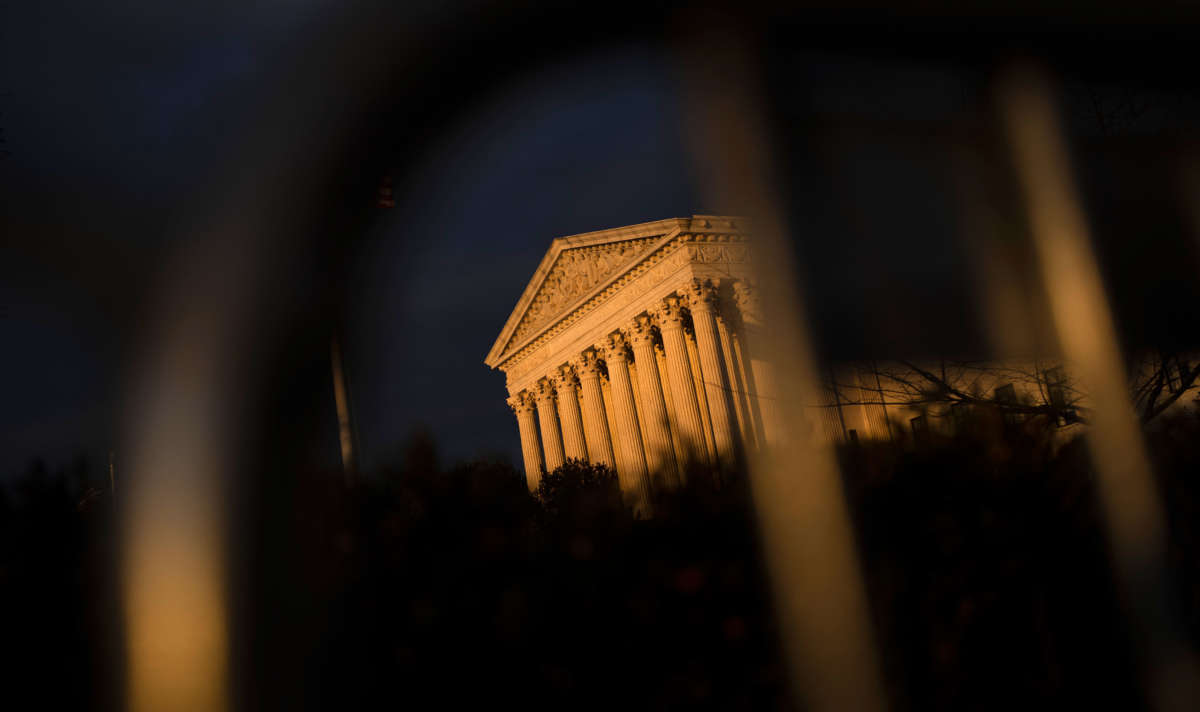Honest, paywall-free news is rare. Please support our boldly independent journalism with a donation of any size.
On Friday, the United States Supreme Court reinstated the death penalty sentence for Boston Marathon bomber Dzhokhar Tsarnaev.
The 6-3 decision was made strictly along ideological lines — all six conservative bloc justices voted in favor of reinstating Tsarnaev’s death sentence, while all three liberals dissented.
The decision is supported by the Department of Justice (DOJ), which argued in favor of reinstating Tsarnaev’s original sentence last year. Such arguments go against campaign promises made by President Joe Biden, who as a candidate vowed to end the federal death penalty. The choice to argue in favor of Tsarnaev’s death sentence also undermines the department’s moratorium on federal executions, which was implemented last summer by Attorney General Merrick Garland.
The Court’s ruling overturns a 2020 decision by the First Circuit Court of Appeals, which found that not enough attention was given to jury selection bias in the case, and that evidence Tsarnaev wanted to provide during the sentencing stage of his trial was improperly disallowed by the district judge overseeing it.
Justice Stephen Breyer wrote a scathing dissent against the ruling, noting that the problems in the district court trial were not resolved by any precedent that the majority cited in their ruling. Breyer recognized, for example, that Tsarnaev’s lawyers were restricted from sharing evidence that suggested his older brother, Tamerlan, who was killed by law enforcement following the bombings, took a larger role in the criminal acts and induced Dzhokhar to participate, information that could have affected his sentencing outcome.
During the guilt phases of the district court trial, the judge would not allow such evidence to be heard, over fears that a “minitrial” of Tamerlan would distract and confuse the jury from considering Dzhokhar’s case. But as Breyer pointed out, such restrictions have been rejected by the Supreme Court before.
“Indeed, this Court has rejected concerns that distracting minitrials should preclude the Government from introducing evidence about a nondefendant third party to show aggravation,” Breyer wrote. “Why then should the same concern preclude a defendant from introducing similar evidence in mitigation?”
The evidentiary and jury selection problems were just the latest, Breyer added, in a line of troubling issues regarding the federal death penalty that he and other liberal bloc members have recognized in the past few years.
“I have written elsewhere about the problems inherent in a system that allows for the imposition of the death penalty,” Breyer said. “This case provides just one more example of some of those problems.”
Speaking against the authoritarian crackdown
In the midst of a nationwide attack on civil liberties, Truthout urgently needs your help.
Journalism is a critical tool in the fight against Trump and his extremist agenda. The right wing knows this — that’s why they’ve taken over many legacy media publications.
But we won’t let truth be replaced by propaganda. As the Trump administration works to silence dissent, please support nonprofit independent journalism. Truthout is almost entirely funded by individual giving, so a one-time or monthly donation goes a long way. Click below to sustain our work.
